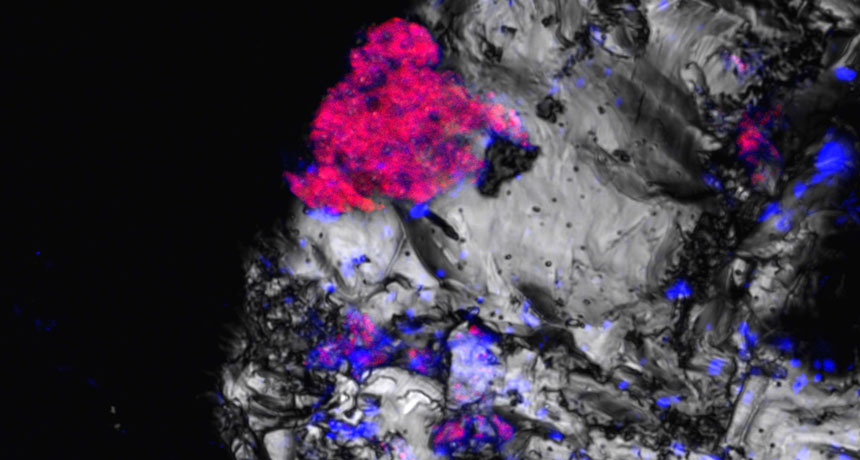
WHAT LURKS BENEATH This fluorescence micrograph shows traces of cyanobacteria (pink and blue), which typically need sunlight to survive, on a mineral collected more than 600 meters underground.
F. Puente-Sánchez/PNAS 2018

WHAT LURKS BENEATH This fluorescence micrograph shows traces of cyanobacteria (pink and blue), which typically need sunlight to survive, on a mineral collected more than 600 meters underground.
F. Puente-Sánchez/PNAS 2018